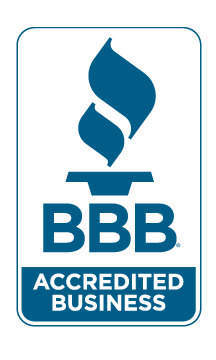Life insurance is that most versatile of investment vehicles, a low-risk product that works for clients in just about any wealth category and life stage. Historically, it has been a key component in many a well-executed estate plan, and it continues to be one of the most relevant, secure options available.
Permanent life insurance is that most versatile of investment vehicles, a low-risk product that works for clients in just about any wealth category and life stage. Historically, it has been a key component in many a well-executed estate plan, and it continues to be one of the most relevant, secure options available. However, with last year's renewed estate tax exemption, agents must continue to adjust their scope and sales pitch when it comes to offering this time-honored solution.
How will this market change over the short- and long-term? Which financial planning dilemmas is it best suited to solve? Brian Titus, advanced marketing attorney at Saybrus Partners, a Hartford, Conn.-based wealth management firm, weighs in on how to get the most out of the product in 2011 and beyond.
ASJ: What makes life insurance an effective wealth transfer vehicle?
BT: For one, after death, its benefits are immediate. Second, and even more important, it pays a benefit that is generally income tax-free to the beneficiary and can usually be made estate tax-free if necessary. Thus, the policy's internal rate of return on its premiums is pretty attractive. And, in today's economic environment, a third reason why life insurance is so effective in this context is that its benefits are not necessarily correlated to any market conditions. When death benefits are paid, for example, the current status of the stock market is not a factor.
ASJ: How have recent estate tax regulations impacted or changed the need for life insurance in a well-rounded estate plan?
BT: The recent temporary increase in the estate tax exemption means that fewer people will be impacted by tax regulations. Not too long ago, a married couple with combined assets of $5 million would have been facing a $1.5 million federal estate tax liability. For deaths in 2011 and 2012, that same couple has no federal estate tax liability. Of course, the question looming over all of this is the future of the estate tax exemption, which is slated to return to $1 million in 2013. Count me among those who think it will remain at current levels for the foreseeable future.
If the exemption remains at $5 or even $3.5 million, estate owners will look to permanent life insurance as a strategy to deal with other, non-estate tax-related financial goals and challenges. These challenges include business succession planning, leveraging unneeded IRAs and deferred annuities and using life insurance as a supplemental retirement income vehicle, among others.
ASJ: Do you expect this market to change in the next five years? If so, how?
BT: I do think there will be significant market uncertainty and even volatility for the foreseeable future. Nevertheless, I think that federal estate and gift tax exemptions will remain at relatively high levels. As the federal budget shrinks, federal grants to the states will also likely shrink, putting more financial pressure on state budgets. As a result, I think that state inheritance taxes will probably stay in place and even return in states that have eliminated them. Many states are required to balance their budgets, and state inheritance taxes will probably be an inviting source of revenue in the future. For this reason, estate owners will have to keep an eye on this issue. I think it is more likely that income tax rates will rise in the near future and that life insurance as a supplemental retirement income vehicle could play an increasingly important role in that regard.
ASJ: Is life insurance equally suited for clients with all levels of wealth?
BT: The quick answer is yes. If the federal estate tax exemption amount stays at the $5 million level or close to it, then certainly fewer estate owners will have to worry about federal estate taxes. I see no reason why the high-net-worth estate owner will not continue to look to life insurance to provide the liquidity needed to pay future estate taxes, even if the amount needed is less.
Even for those who will not have to worry about federal estate taxes, there are other non-estate-tax-related financial issues for which life insurance can be a solution. Again, using life insurance as a supplemental retirement income vehicle could be quite attractive in an environment of rising income tax rates.
ASJ: What is the No. 1 question you hear from clients about incorporating life insurance into their estate plan? How do you answer it?
BT: Probably the most common question these days is, "Why do I need permanent life insurance if I have no estate tax issue?" I answer this question in a couple of different ways. First, the financial adviser and the client should have a discussion about the future of federal and state estate taxes. The client may not have an issue today, but may have one in the future.
If the client and adviser agree that there is no federal estate tax issue, then the adviser should discuss other financial planning issues that might use life insurance as part of an overall strategy.
© Copyright Legacy Secure on MI Inc






